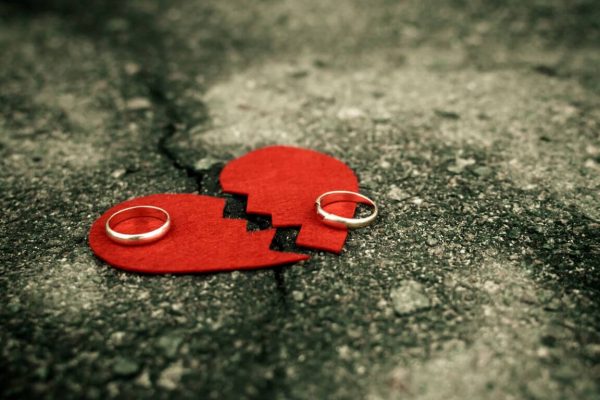
For an Indian Woman, Deciding on Divorce Is Like a Trolley Problem

-
By
-
June 17, 2025
-
No Comments
Imagine a woman standing at a crossroads, forced to choose between two tracks—each carrying the weight of irreversible consequences. This isn’t a philosophy lecture. This is the lived reality for many Indian women contemplating divorce. Like the infamous trolley problem in ethics, where pulling a lever can save five lives but sacrifice one, an Indian woman must decide: stay in an unhappy marriage and preserve her family’s “honour,” or choose personal freedom and risk social, emotional, and financial fallout.
The Weight of Culture and Conditioning
In the traditional Indian context, marriage is not just a union of two individuals—it’s a sacred, lifelong contract bound by family, religion, and societal expectations. From a young age, girls are taught to adjust, compromise, and carry the emotional labor of keeping the family together.
Even if her mental health is deteriorating, her spouse is emotionally unavailable (or abusive), or she’s lost her identity in the daily grind, leaving the marriage often feels unthinkable. Why? Because the weight of being called a “divorcee” is heavier than being quietly unhappy. Society still treats divorced women as if they are the lever-puller—the one who caused the damage, broke the family, or “gave up too soon.”
Track One: Staying Back
On one track lies the decision to stay—often to “protect” the children, appease in-laws, and maintain social status. But at what cost?
- Emotional stagnation: Suppressed dreams, resentment, and loneliness.
- Mental health issues: Anxiety, depression, low self-worth.
- Role modelling: Teaching the next generation that suffering is noble and self-sacrifice is love.
Women who stay often become invisible—to themselves and others. Their pain is swallowed silently, their stories never told.
Track Two: Walking Away
The second track is painful too—but in a different way. Choosing divorce means stepping into a battlefield of stigma, judgment, and legal complexity.
- Family disappointment: “What will people say?” still echoes louder than “Are you okay?”
- Financial insecurity: Many Indian women are not financially independent, making the transition difficult.
- Loneliness: Friendships change. Invitations stop. The label follows her like a shadow.
And yet, for many, this is the only track where true healing begins. It is the track of reclaiming power, setting boundaries, and redefining love—not as duty, but as mutual respect.
The Inner Conflict: Not Just External
The trolley problem isn’t just about external choices—it’s a moral conflict. And so it is with divorce. The Indian woman struggles not just with society, but with herself. She questions her worth, her morality, her strength.
“Am I being selfish?”
“What if I’m wrong?”
“Will I ruin my children’s lives?”
These questions are real, raw, and heart-wrenching.
There’s No Perfect Track—Only the Courage to Choose
The truth is, there’s no ideal outcome. Every track leaves scars. But one gives a woman a fighting chance at wholeness. Divorce, in this context, is not a failure—it is an act of radical courage.
It’s not about breaking a family. It’s about breaking a pattern—of silence, suffering, and self-neglect.
What Needs to Change
- Empathetic Support Systems: Women need non-judgmental spaces—counselling, support groups, and friends who don’t shame them for choosing themselves.
- Legal and Financial Literacy: Empowering women with knowledge about their rights, property laws, and alimony is essential.
- Cultural Shifts: We must stop equating endurance with virtue. Healthy relationships require mutual growth—not silent suffering.
- Male Allyship: Men, too, need emotional education. A woman choosing divorce is not attacking manhood—she is reclaiming her humanity.
In Conclusion
For an Indian woman, choosing divorce can feel like a no-win situation. But sometimes, pulling the lever isn’t about choosing who gets hurt. It’s about choosing to stop hurting yourself.
May we learn to see these women not as rebels, but as survivors. Not as selfish, but as self-aware. And may we shift the conversation from “Why didn’t you stay?” to “What gave you the strength to leave?”
About Mona Singh
Hi, I’m Mona Singh – Certified Divorce Empowerment & Mindset Coach, POSH Trainer, NLP & Reiki Master. I help professionals navigate life’s toughest transitions—like divorce, emotional trauma, or burnout—with clarity, strength, and purpose.
Having personally overcome divorce, narcissistic abuse, and identity loss, I guide clients through emotional overwhelm, decision paralysis, and self-doubt—toward confidence, self-worth, and empowered action.
Through 1:1 coaching, mindset programs, and energy healing, I support you in healing from the past, rebuilding your future, and rising into your power.
You don’t have to walk this path alone.
Let’s turn this turning point into your breakthrough.
Related Post

YaraCoaching: Your Trusted Support System Before, During & After Divorce or Breakup





